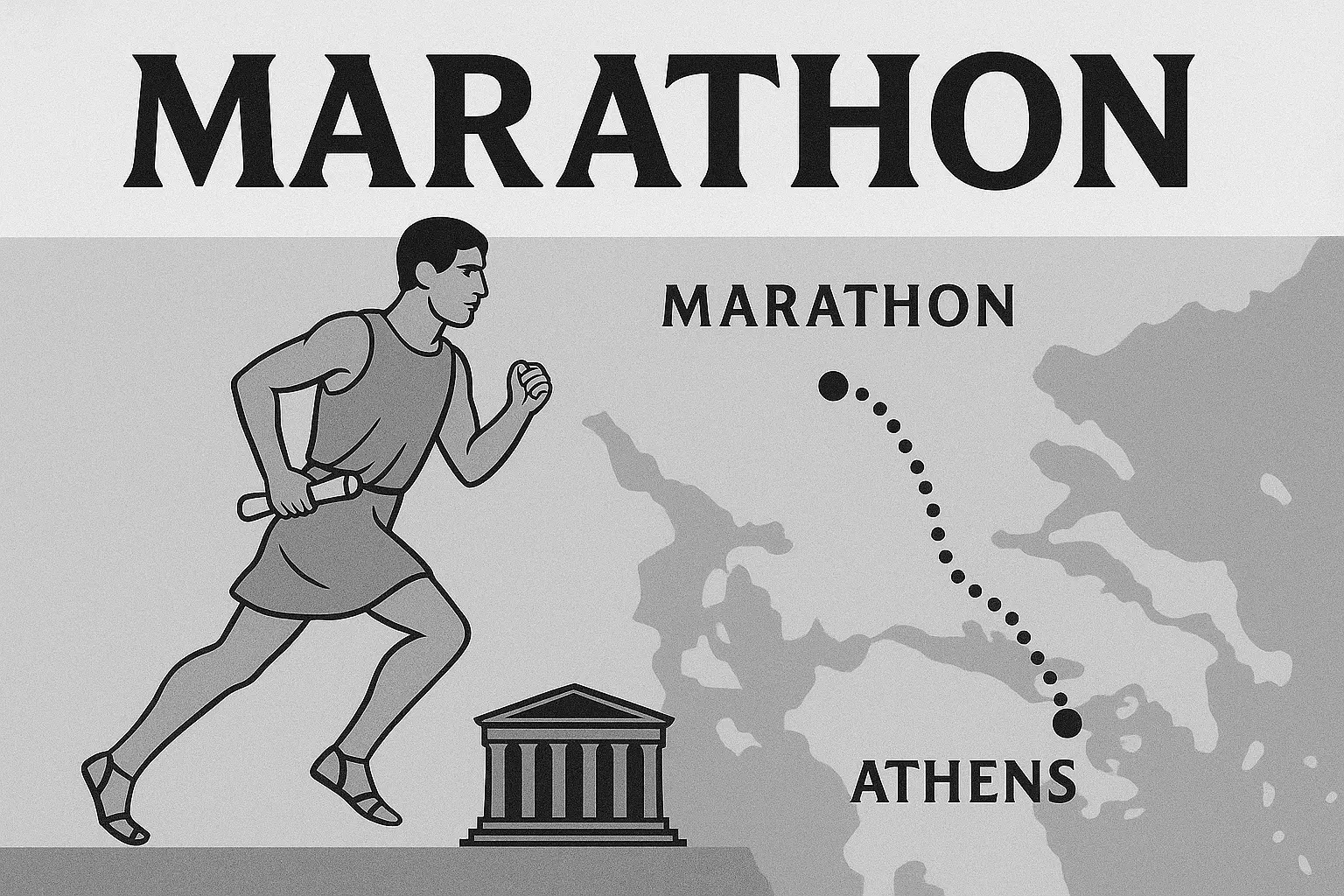Marathon

The Battle of Marathon (490 BCE)
Context
In 490 BCE, during the first Persian invasion of Greece, forces from the Persian Empire landed on the plain of Marathon. The Athenian army, commanded by Miltiades, engaged the Persians in a decisive encounter. Although significantly outnumbered, the Greek hoplites used tactics that led to a decisive victory for Athens.
Why it mattered
- The victory boosted Greek confidence and helped preserve Greek political independence at a pivotal moment.
- It is often seen as the start of a series of events that led to the flourishing of classical Greek culture, especially in Athens.
Key facts
| Fact | Detail |
|---|---|
| Date | 490 BCE |
| Location | Plain of Marathon, Attica (≈40 km northeast of Athens) |
| Athenian commander | Miltiades |
| Significance | Decisive Greek victory over Persian forces |
The Legend of Pheidippides
The popular story tells of Pheidippides (sometimes called Philippides), a messenger who ran from Marathon to Athens — roughly 40 kilometers / 25 miles — to announce the Athenians' victory. According to later accounts, he arrived, proclaimed "Nenikēkamen" ("We have won"), and collapsed and died from exhaustion.
Source notes: Early sources vary. Herodotus mentions a long run from Athens to Sparta before the battle (about 240 km) but does not record the death-run. The dramatic Marathon→Athens death-run appears in later writers and grew into the modern myth that inspired the Olympic race.
From Legend to Modern Race
The modern marathon race was introduced at the first modern Olympic Games (Athens, 1896) to honor the ancient Greek legend. The early distance was about 40 km, reflecting the approximate distance between Marathon and Athens.
At the 1908 London Olympics, the race distance was set to 26 miles 385 yards (42.195 km) to accommodate the British royal family's wishes — a start at Windsor Castle and a finish in front of the Royal Box. That distance later became the standardized length still used today.
Notable early winner
Spyridon Louis, a Greek water-carrier, won the marathon at the 1896 Athens Olympics and became a national hero.
Cultural Meaning & Modern Usage
Beyond athletics, "marathon" has entered general language to describe any long, sustained effort that requires endurance — e.g., a "movie marathon", a "study marathon", or a lengthy political debate referred to as a "marathon session."
Concise Timeline
Further Notes & Sources
(Short guidance) For academic or citation work, consult primary ancient sources such as Herodotus and later historians like Plutarch and Lucian. For modern Olympic history consult official Olympic reports and histories of the modern Games.
Quick facts
Place: Marathon, Attica (Greece)
Ancient event: Battle of Marathon (490 BCE)
Legendary run: Pheidippides (~40 km) — later mythologized
Modern distance: 42.195 km (official since 1908)
Map & location
Marathon is roughly 40 km (≈25 miles) northeast of Athens. You can view it on your preferred map application using the coordinates:
Lat: 38.1500°, Lon: 24.0000°
Fun cultural notes
- "Marathon" as a metaphor for endurance is used worldwide.
- There are thousands of organized marathons globally, from city marathons to trail ultras.